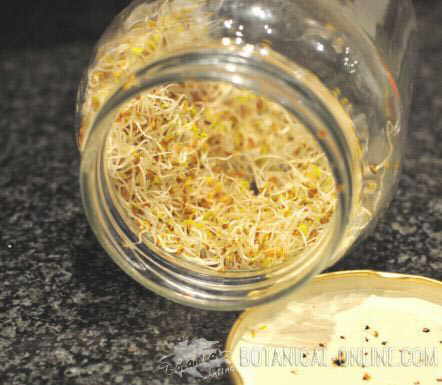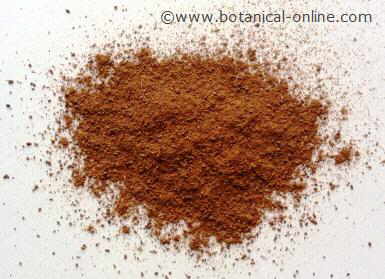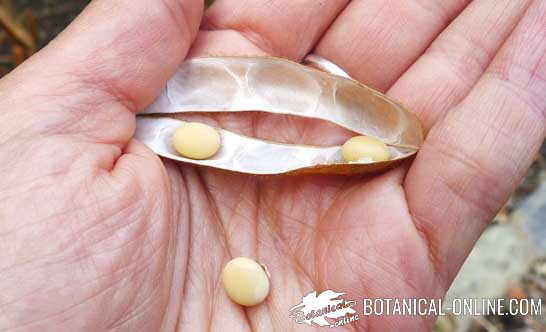Contents
(Cassia spp.)
WHEN YOU SHOULD AVOID TAKING CASSIA PREPARATIONS
Senna (Cassia spp) is a strong stimulant laxative. It is recommended to start treating constipation with mild laxative (herbs and supplements) or lubricant laxatives (oils and glycerin suppositories).
If you need a strong stimulant laxative, it is recommended to take cascara, which has the same effect as the sena but less intense.
| The laxative effect of Senna takes 4-12 hours to appear Because of possible adverse effects, consult with your doctor about the convenience of using this plant |
Cassia only for short treatments
Treatments with cassia should not last longer than 7 to 10 days. In case of adverse reactions, it is recommended to stop the treatment and consult your doctor.
Never give Senna in the following cases
 Senna fruits
Senna fruits- Pregnany or breastfeeding: Not to be used during pregnancy or breastfeeding or with children under 6 years.
- Chronic constipation: Not to be used in cases of chronic constipation, since it accentuates it more. Because it causes contractions, the muscle loses its tone to the point that the bowel can lose its natural functions evacuation.
- People taking medication: in general, this plant favors the medication passage through the intestine reducing their effects, so this must be taken into account when the person making use of this plant is subject to some medication.
- Heart disease: not for use in cases of heart failure, hypertension or heart disease. Nor should it be combined with heart medications such as drugs for hypertension.
- Intestinal disease: Not to be used in cases of intestinal inflammation, vomiting, undiagnosed acute intestinal pain, intestinal obstruction, inflammation of the urinary bladder, uterus inflammation, appendicitis, Crohn’s disease, ulcerative colitis.
- Kidney disease: It is a contraindicated plant if kidney disease, kidney failure, inflammation of the urinary bladder, renal failure, nephritis.
- Liver disease: should not be used in cases of liver failure
- Menstruation: It should not be used during menstruation or inflammation of the uterus.
Use of cassia can be dangerous when mixed with the following
- Anticoagulants: their use may enhance the effects of the anticoagulants, such as warfarin or coumarin.
- Diuretics: It is contraindicated if you take diuretics. It can cause electrolyte imbalances in the body.
- Medicinal Plants: It should not be combined with horsetail or licorice because it can lead to very low potassium levels (hypokalemia). It should not be combined with other laxatives such as cascara, aloe vera, buckthorn, rhubarb, purging buckthorn, walnut bark or field bindweed.
![]() More information on cassia.
More information on cassia.








